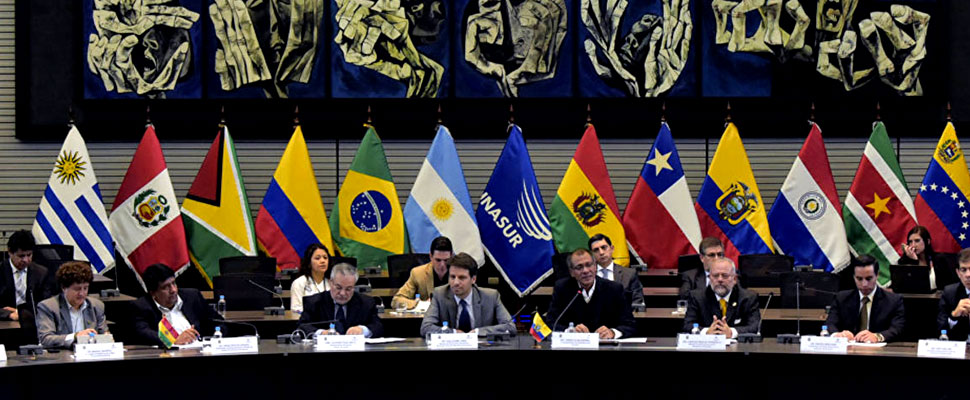
Latin America has seen a number of regional integration efforts over the years, with the aim of promoting economic cooperation, political and social between the countries of the region. Some of the main regional integration processes in Latin America include:
Mercosur: Founded in 1991, the Common Market of the South is a customs union between Argentina, Brazil, Paraguay and Uruguay, with the aim of promoting economic and commercial integration in the region.
pacific alliance: Founded in 2012, the Pacific Alliance is an intergovernmental organization that includes Chile, Colombia, Mexico and Peru, with the aim of promoting economic integration, trade and politics in the region.
Caribbean Commonwealth of Nations: Founded in 1973, the Caribbean Community of Nations is a regional organization that includes Caribbean countries, with the aim of promoting economic integration, political and social in the region.
Union of South American Nations: Founded in 2008, the Union of South American Nations is an intergovernmental organization that includes all countries in South America, with the aim of promoting economic integration, political and social in the region.
Community of Latin American and Caribbean States (CELAC): Founded in 2011, is an intergovernmental organization that includes all countries of the Americas, with the exception of Canada and the United States, aiming to deepen the political integration, region's economic and social.
These are just some of the main regional integration processes in Latin America, each with their own goals and scope. In general, these efforts are aimed at helping to strengthen the economy, politics and society in the region, in order to promote sustainable economic and social development.
Regional integration offers a number of benefits for Brazil and for Latin America as a whole. Some of the main benefits include:
- increased trade: Regional integration can increase trade between countries in the region, which can help spur economic growth and job creation.
- Greater access to markets: Brazil may have access to new markets for its products and services, which can increase your participation in international trade.
- Improvement in competitiveness: Regional integration can help improve the competitiveness of Brazilian industry, especially through the elimination of trade barriers and the promotion of economic cooperation between countries.
- Fostering innovation: Regional integration can foster innovation and collaboration in key sectors, like technology, energy and environment.
- Strengthening political cooperation: Regional integration can strengthen political cooperation between countries in the region, which can help resolve regional and global issues more effectively.
When we look specifically at the Brazilian case, there are several reasons why our foreign policy should be more active in promoting regional integration.
- Stimulate economic growth: Regional integration can help spur Brazil's economic growth, increasing trade among countries in the region and promoting economic cooperation.
- improve competitiveness: Regional integration can help improve the competitiveness of Brazilian industry, especially through the elimination of trade barriers and the promotion of economic cooperation between countries.
- Foster innovation: Regional integration can foster innovation and collaboration in key sectors, like technology, energy and environment, which can help develop solutions to regional and global challenges.
- Strengthen political cooperation: Regional integration can strengthen political cooperation between countries in the region, which can help resolve regional and global issues more effectively.
- Increase global influence: Brazil can increase its global influence by working closely with other countries in the region to address regional and global issues..
Improving regional integration in Latin America could be beneficial for Brazil in terms of stimulating economic growth, improve competitiveness, foster innovation, strengthen political cooperation and increase global influence.
